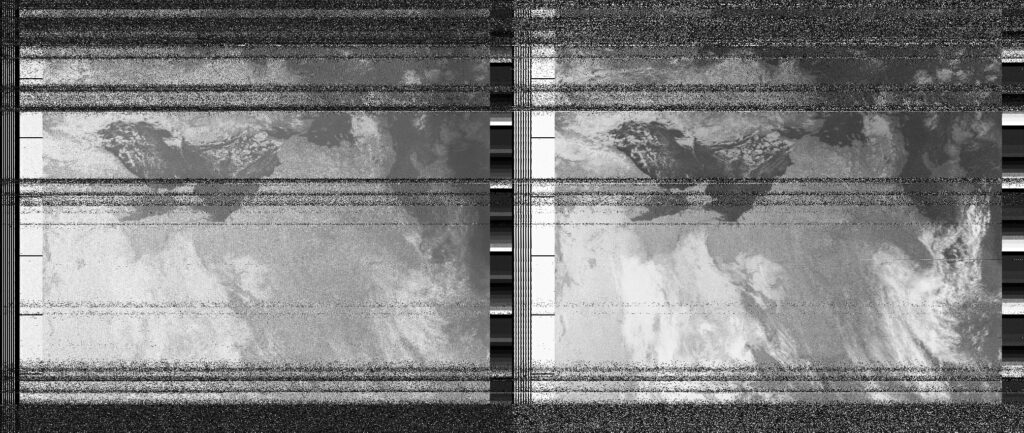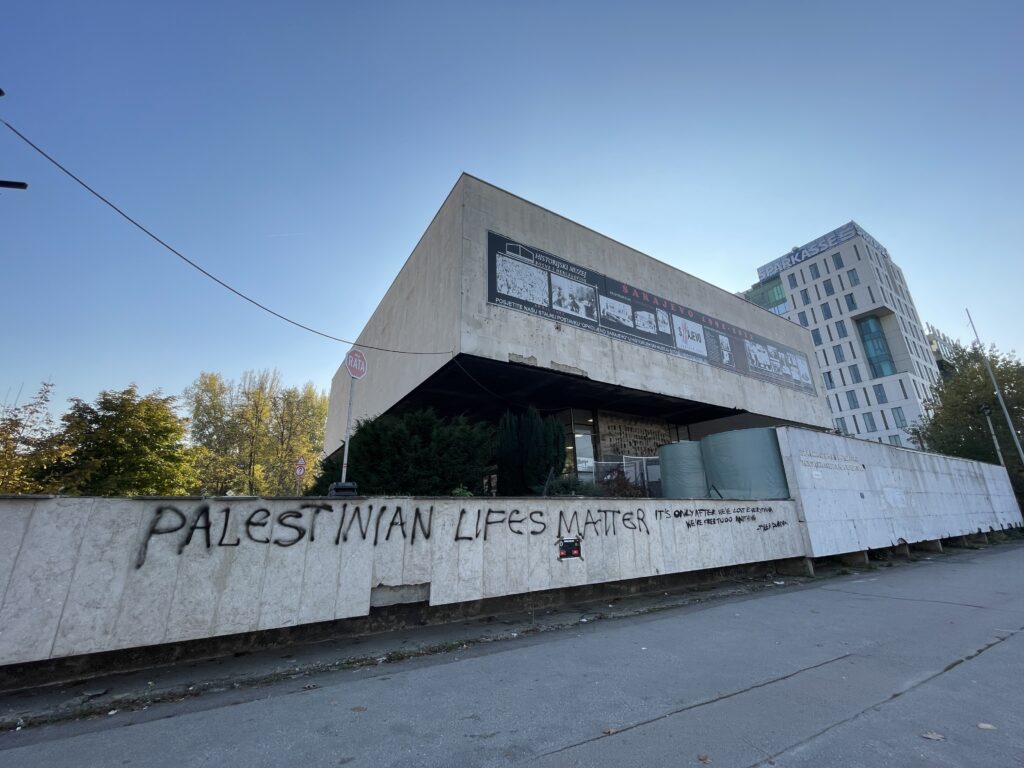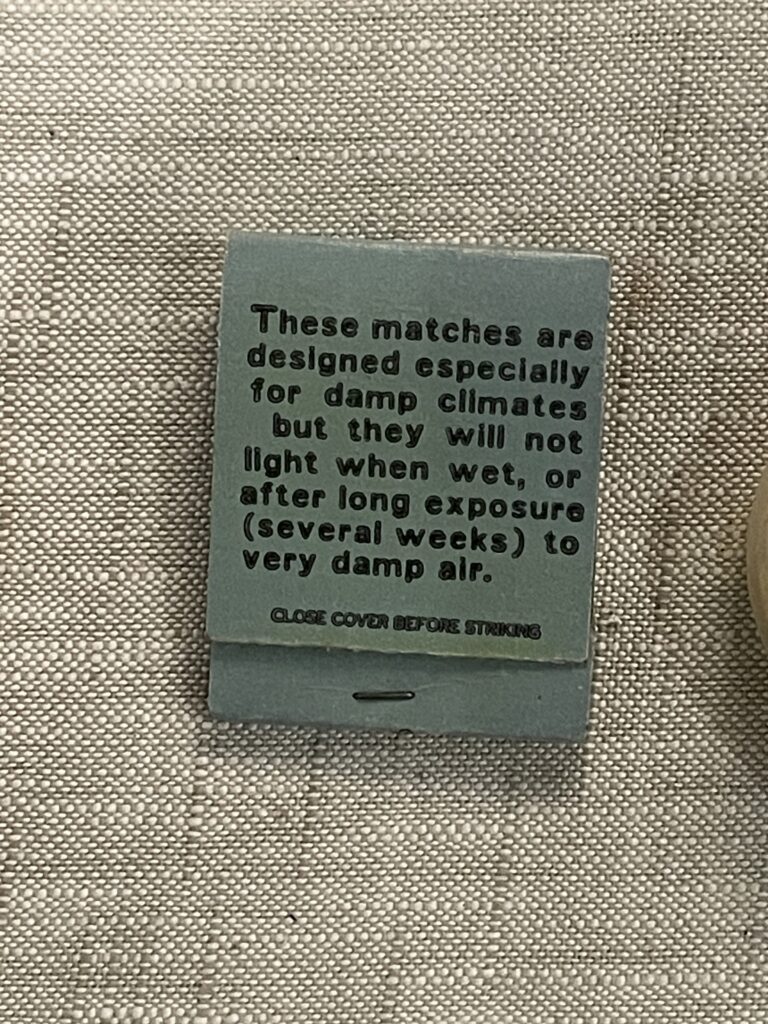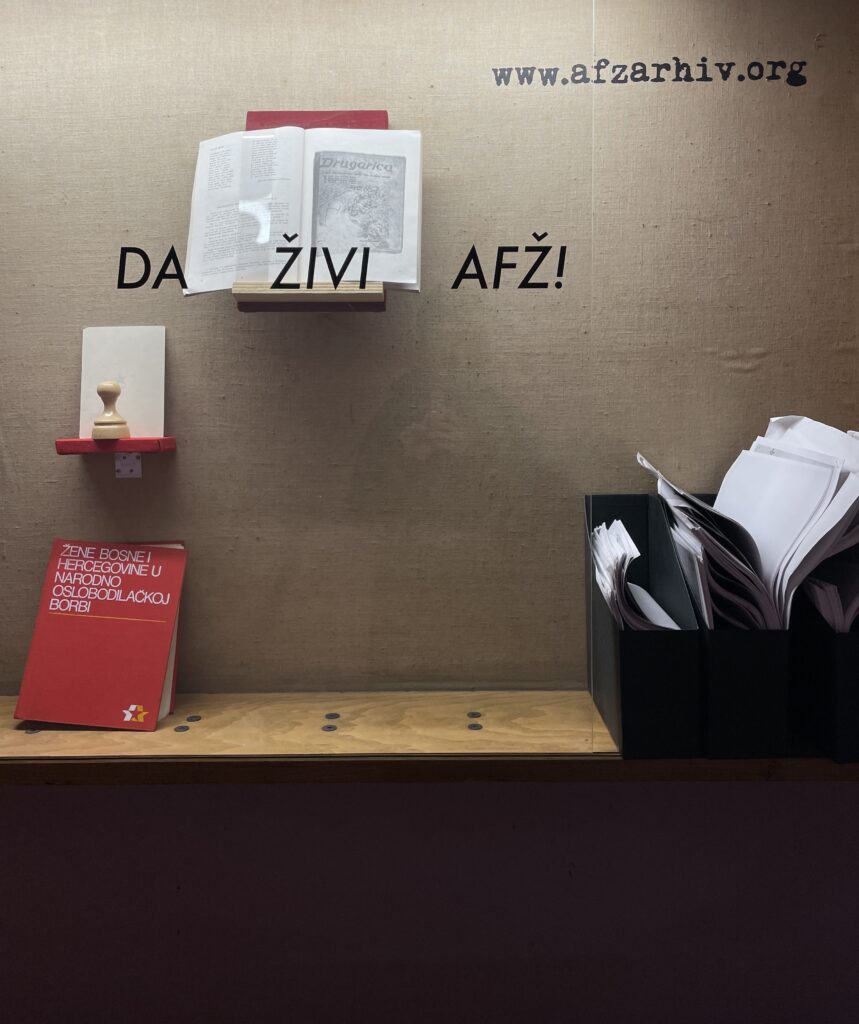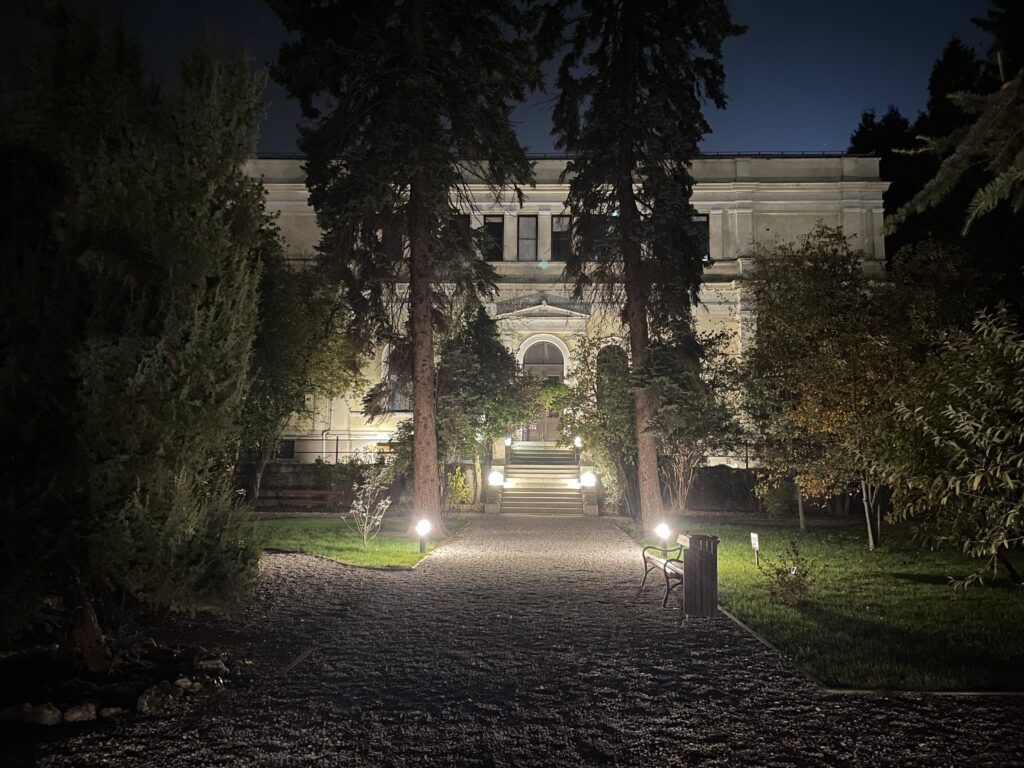Local Date
5 November 2024Local Time
17:48Location
Zemaljski muzej Bosne i Hercegovine, SarajevoCountry or Territory
Bosnia and HerzegovinaContributor
Sasha EngelmannSatellite
NOAA-15Radio Callsign
Archive ID
Coordinates
It’s dark, and I am standing in the botanical garden of the National Museum of Bosnia and Herzegovina in Sarajevo. It has been a sunny, cold day. Across the street from where I am standing is the US Embassy, a place whose politics will change in the next 24, or maybe 48 hours, depending on how close the election is. The embassy is measuring the air quality as part of the IQ Air network. The level of pollution is currently 122 on the AQI scale, meaning ‘unhealthy for sensitive groups’. The main pollutant contributing to this unhealthy air is PM2.5, the most deadly of the microscopic particles. In comparison, London’s air today is around 70-80.
It feels somewhat prescient that, on the day my home country is voting to elect (or not) a fascist leader, I have been conducting historical research on the Antifašistička Fronta Žena (AFŽ) at the nonprofit organisation and art space called Crvena. I learned about women’s efforts to organise between 1942-1953, largely around issues related to women’s working lives, their capacity to aid in the fight against fascism by taking up all manner of jobs, their need for labour recognition, their literacy, and childcare practices. As Andreja Dugandžić, co-director of Crvena explained to me, the term ‘feminism’ was not so popular at the time as it was seen as a bourgeois idea, but a ‘women’s antifascist front’ was a concrete and inspiring movement for many women in former Yugoslavia. I read magazines like ‘Nova Žena’, poems by women writers, and looked at prints and engravings. Some of it felt very contemporary - expressions of power and voice - while other parts would turn to the domestic, for example ‘how to treat diarrhoea in your baby’ or even an article on 'butchering chickens'. One article was called ‘čudno kuhinje’ (strange cooking) and I look forward to translating it to understand what kind of cooking the AFŽ thought to be strange! I wasn’t able to understand or read everything given my basic Croatian/Serbian /Bosnian, but I absorbed so many themes and images, it will take months to entirely unpack. I am left with the feeling of the Yugoslav women’s antifascist movement as a prideful one. I also felt something resonant between the thematics of the AFŽ and what I have come to understand as ‘cuerpo-territorio’ (body-land) in South American feminisms. Like cuerpo-territorio, the movement of AFŽ was about relations to land, as much as it was about anti-fascist struggle. Sharing some of the poems of 'Nova Žena' with my Mom, she immediately replied with the exclamation that she felt so much pride, like those women did, and that she also wrote poems as a teenager in Belgrade about the pride and struggle ('borba') of Yugoslavia. As I ride the tram back to the hotel, I think of my Mom, who now lives in the 'red state' of Florida, and I reflect, not without a lot of worry, about the political systems she has weathered in her life.
